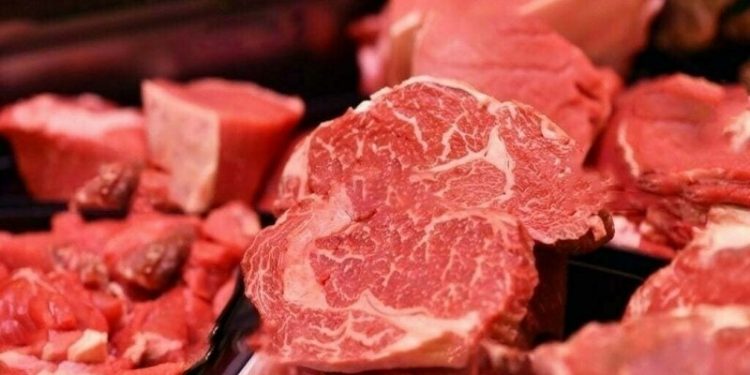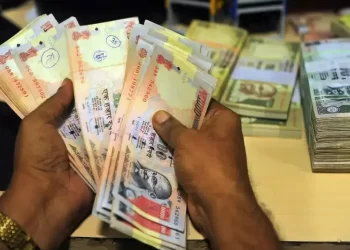LAHORE: The Punjab government has earmarked Rs 20 billion for the development of the livestock sector during the current fiscal to be spent on different major projects including livestock farmer’s card, foot and mouth disease control programme and distribution of livestock assets to rural widows and divorced women.
Punjab Minister for Livestock and Agriculture, Syed Ashiq Hussain Kirmani disclosed this while speaking at a ceremony arranged by an NGO Brooks on the occasion of “World Animal Protection Day” here on Friday. Secretary Livestock Saqib Ali Ateel and Chief Executive Officer Brooks Javed Gondal also attended.
The minister hailed the services of organizations like Brooks and said they were supporting a very important sector which is contributing significantly to the stability of our economy. Livestock also plays an important role in the employment of a large part of the population, he added.
The minister said that the Livestock Department is continuing its efforts to strengthen all animal welfare organizations.
According to the vision of Chief Minister Punjab Maryam Nawaz Sharif, the Punjab government in the recent budget has allocated a huge amount of 20 billion rupees for the development of this sector. This is in addition to other expenses for livestock.
Such a large amount has never been allocated in the history of Punjab province. This amount is for major projects of the Livestock Department initiated by the chief minister of Punjab. These include initiatives of Chief Minister Punjab including Livestock Card, Foot and Disease Control Programme and distribution of livestock assets to rural women widows and divorced of South Punjab.
He maintained that the government is establishing Foot and Disease Control Compartments, Zones and Quarantine Centers.
The Department of Livestock has made complete arrangements for traceability, tagging, vaccination and insemination of animals in these compartments and zones. The objective is to increase the production of disease-free, high-quality meat and milk for domestic use and to increase exports.
Addressing the seminar on this occasion, Secretary Livestock Punjab Saqib Ali Ateel said that 8 million families in Pakistan are associated with the livestock sector.
The Department of Livestock Department Punjab is taking great measures regarding the health and welfare of animals. He said that agriculture and livestock sectors are part of our culture and civilization.
A balanced diet is very important in animal nutrition for which Livestock Department is providing better quality feed to livestock farmers and supporting the private sector.
Efforts are being made to solve the problems related to animal feed in Punjab. He endorsed that the livestock department is among the top priorities of the Chief Minister of Punjab on which she is focused and spending considerable money on the development of this sector.
Secretary Livestock Punjab added that 5 compartments will be established in the first year. Saqib said the Punjab government is ensuring the supply of protein-rich feed for animals to increase milk and meat production.
LAHORE: The Punjab government has earmarked Rs 20 billion for the development of the livestock sector during the current fiscal to be spent on different major projects including livestock farmer’s card, foot and mouth disease control programme and distribution of livestock assets to rural widows and divorced women.
Punjab Minister for Livestock and Agriculture, Syed Ashiq Hussain Kirmani disclosed this while speaking at a ceremony arranged by an NGO Brooks on the occasion of “World Animal Protection Day” here on Friday. Secretary Livestock Saqib Ali Ateel and Chief Executive Officer Brooks Javed Gondal also attended.
The minister hailed the services of organizations like Brooks and said they were supporting a very important sector which is contributing significantly to the stability of our economy. Livestock also plays an important role in the employment of a large part of the population, he added.
The minister said that the Livestock Department is continuing its efforts to strengthen all animal welfare organizations.
According to the vision of Chief Minister Punjab Maryam Nawaz Sharif, the Punjab government in the recent budget has allocated a huge amount of 20 billion rupees for the development of this sector. This is in addition to other expenses for livestock.
Such a large amount has never been allocated in the history of Punjab province. This amount is for major projects of the Livestock Department initiated by the chief minister of Punjab. These include initiatives of Chief Minister Punjab including Livestock Card, Foot and Disease Control Programme and distribution of livestock assets to rural women widows and divorced of South Punjab.
He maintained that the government is establishing Foot and Disease Control Compartments, Zones and Quarantine Centers.
The Department of Livestock has made complete arrangements for traceability, tagging, vaccination and insemination of animals in these compartments and zones. The objective is to increase the production of disease-free, high-quality meat and milk for domestic use and to increase exports.
Addressing the seminar on this occasion, Secretary Livestock Punjab Saqib Ali Ateel said that 8 million families in Pakistan are associated with the livestock sector.
The Department of Livestock Department Punjab is taking great measures regarding the health and welfare of animals. He said that agriculture and livestock sectors are part of our culture and civilization.
A balanced diet is very important in animal nutrition for which Livestock Department is providing better quality feed to livestock farmers and supporting the private sector.
Efforts are being made to solve the problems related to animal feed in Punjab. He endorsed that the livestock department is among the top priorities of the Chief Minister of Punjab on which she is focused and spending considerable money on the development of this sector.
Secretary Livestock Punjab added that 5 compartments will be established in the first year. Saqib said the Punjab government is ensuring the supply of protein-rich feed for animals to increase milk and meat production.









